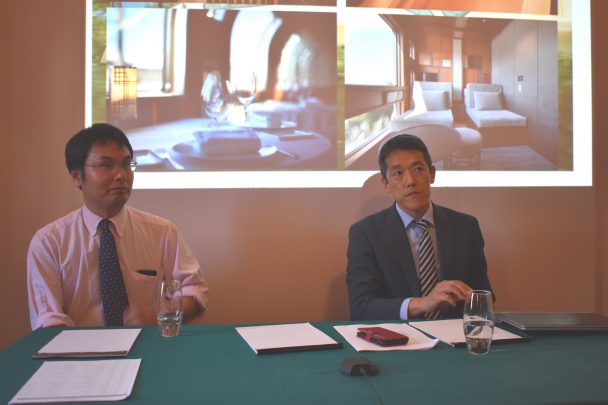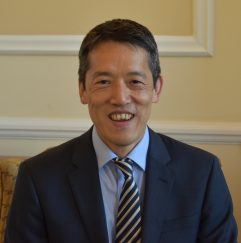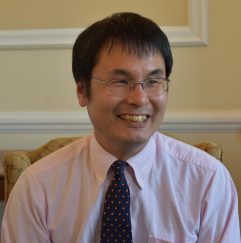 Talk
TalkTuesday 22 May 2018
6:00pm – 7:00pm
Railway Systems and Punctuality in Japan and the UK
Drinks reception from 7:00pm
13/14 Cornwall Terrace, Outer Circle (entrance facing Regent's Park), London NW1 4QP
Organised by the Daiwa Anglo-Japanese Foundation
Railways, developing around 200 years ago in the UK are considered environmentally sustainable as well as supporting economic growth. Masaru Inoue, one of the Choshu Five who came to study at University College London in 1863, returned to Japan with knowledge of British railway technologies, and since then, Japanese railways have evolved differently from the UK. Today, there is vast potential for both countries to learn from each other. West Midlands Trains, owned jointly by companies including the East Japan Railway Company, is one company we can look to for the exchange of such knowledge and experiences, which started operating its regional services on the West Coast Main Line and in the West Midlands in December 2017.
Focusing on railway systems and punctuality, this seminar answered the question: what can Japan and the UK learn from each other? The speakers Jun Hirano and Taku Fujiyama drew on the experiences of the East Japan Railway Company and UCL’s research and discussed the approaches used by railways to run train services on time and to improve passenger experience.
Presentation by Dr FujiyamaAbout the contributors

Jun Hirano
Jun Hirano has been Deputy Director at East Japan Railway Company (JR East) London Office since spring 2014 . Since joining JR East in 1998, he has mainly been engaged in track and civil structure maintenance work as an in-house civil engineer. Recently he has been involved in high-speed rail projects in the US and UK, and UK franchise business.

Taku Fujiyama
Taku Fujiyama is a Senior Lecturer at the Department of Civil Engineering, University College London. He leads the UCL Railway Research Group, which will start a new MSc programme in Urban Railways in September 2018. Before commencing his research career into railway systems and railway traffic control in urban areas, Fujiyama worked in the JR East for five years. His research into designs of platform humps for the London Underground was awarded the James Hill Prize by the Institution of Civil Engineers, while his project on lightweight metro trains received a Stephenson Award for Engineering Innovation.